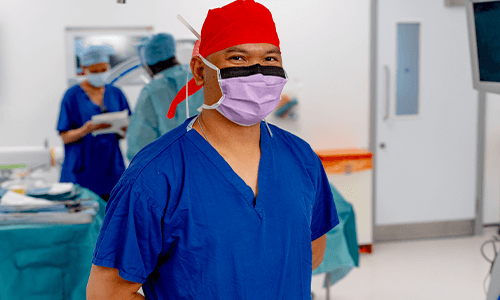Oaks Hospital Specialists
-
-
Mr Matthew Tutton
Matthew Tutton has more than 15 years experience as a Consultant General and Colorectal Surgeon. He is a specialist in robotic bowel surgery, laparoscopic (keyhole) surgery and endoscopy. He is the Divisional Director for Surgery at Colchester and Ipswich Hospitals.
Read more -

Mr Subash Vasudevan
Mr Vasudevan is a Consultant General & Colorectal Surgeon at Essex, Oaks Hospital
Read more -

Mr Greg Wynn
Mr Greg Wynn is a Consultant General Surgeon in Essex, he specialises in gallstones, hernias, endoscopy, colorectal cancer, inflammatory bowel disease, diverticular disease, IBS, haemorrhoids and fistulas.
Read more



